#This man really killed one of his best friends for a scientific dispute
Explore tagged Tumblr posts
Text
Dear Lanyon,—You are one of my oldest friends; and although we may have differed at times on scientific questions, I cannot remember, at least on my side, any break in our affection. There was never a day when, if you had said to me, ‘Jekyll, my life, my honour, my reason, depend upon you,’ I would not have sacrificed my left hand to help you. Lanyon, my life, my honour, my reason, are all at your mercy; if you fail me to-night, I am lost.
Sir Henry Jekyll, admired scientist of your time.
“It is well,” replied my visitor. “Lanyon, you remember your vows: what follows is under the seal of our profession. And now, you who have so long been bound to the most narrow and material views, you who have denied the virtue of transcendental medicine, you who have derided your superiors—behold!”
You are a hypocrite beyond comparison.
How could he? How truly could he dare do this? I ask, and yet the answer lays on Hyde's words, and Jekyll's intentions.
Lanyon's letter is the beginning of the end in this mystery. It is the ugly truth coming to light, it's looking at the horror directly, and wondering why are you witnessing this.
How arrogant of Jekyll to play with his disturbing discovery like this in front of his old friend. He wrote such moving letter, so well written and so desperate, to lead Lanyon to do what he wanted. Yet, in his desperation to prove his theory, Jekyll killed Lanyon.
Remember how they fell apart, a dispute about crimes against science, probably trying to do magic, and call it science. Then neither can see eachother, leaving Utterson in the middle, and in all of that time Jekyll was preparing this while Lanyon was none the wiser.
The chase, the instructions, Hyde coming to Lanyon's house specifically, all of it was planned.
Now that I truly think about it, maybe this is why Hyde had such despicable aura, and how he as mask ends up becoming "stronger" than Jekyll despite him being a fundamental part of the gentleman. Hyde's whole being, one of the pillars that made his existance possible was Jekyll's emotions towards Lanyon. All of that pettiness, the hate, the rage, all of them boiled inside Jekyll then exploded in Hyde.
Hyde is not only Jekyll with a mask, he is Jekyll's ill intentions made physical to the point that the first thing people notice about him is that negative miasma that makes them hate him. Hyde was born out of hatred!
And what Jekyll did was inflict that traumatic transformation upon Lanyon... Because Lanyon rightfully called his endeavours "unscientific balderdash." An unscientific balderdash that ended up killing him from pure terror.
This whole horrifying display of defying the laws of nature was just the pettiest way possible for Henry Jekyll to finally prove to his old friend Hastie Lanyon that at the end he was the better scientist.
#This man really killed one of his best friends for a scientific dispute#Truly impressed by this mad scientist#No wonder Hyde is like That™#jekyll and hyde weekly#the strange case of dr jekyll and mr hyde#henry jekyll#hastie lanyon
27 notes
·
View notes
Note
Would you consider Hugo Strange a pulp villain?
Yes. And I would argue that he didn't really stop being one even after his revival.
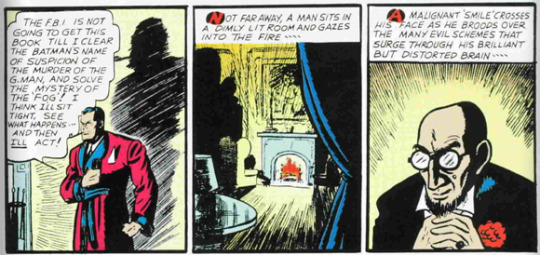
"Professor Hugo Strange, the most dangerous man in the world! Scientist, philosopher and a criminal genius - little is known of him, yet this man is undoubtly the greatest organizer of crime in the world! - Bruce Wayne, Detective Comics #36
Hugo Strange was created with the intention of being Batman's arch-enemy right from the start, introduced as such by Bruce when he figures out he's responsible for the G-man assassination, pretty explicitly intended to be Batman's Moriarty and with even an equivalent demise. He was big enough to tower over his henchmen and fistfight Batman, he had a uniquely deformed skull, he was both a charismatic but threatening crimelord as well as a mad scientist plotting to TAKE OVER THE WORLD, and I've heard before the argument that the Monster Men were taken from a Doc Savage novel released earlier the same year called The World's Fair Goblin that revolves around a giant mutated man doing crimes under command by the story's villain
That poor devil, Maximus, was a Fair visitor himself, once. He was given injections of thyroxine and adrenalin—and changed rapidly into a pituitary giant. But, in the experiment, his will power was destroyed. Now he only follows the directions of that masked devil who has him hypnotized
He said, "The Man of Tomorrow stuff was merely publicity to draw the Fair crowds—and a shield to cover your own experiments. But the masked surgeon cashed in on it. Obviously he is mad enough to really believe a superman can be created." - The World's Fair Goblin
(Considering Lester Dent had taken potshots at Superman explicitly in "Whisker of Hercules", it's not unlikely that this is an explicit reference)
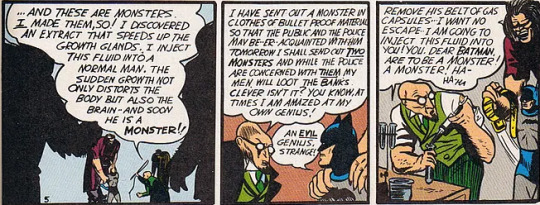
Although there's really no overlap in the stories besides that, as The World's Fair Goblin only had one giant where as Hugo mutated a couple dozen mentally ill patients to create monsters and then used them to go on mass murdering rampages, because Batman has always been over-the-top. But, yeah, original form Hugo was a pretty cut and dry pulp villain, like most of Batman's villains who debuted prior to 1940. Which is part of why he only had about 3 appearences before they killed him off.
By this point, Batman was in the process of moving away from his pulp knock-off origins into more of his own character, with the introduction of Robin and Dick Tracy cartoon villains that would set the tone for the rest of Batman in the Golden Age, and with the debut of Joker and Catwoman in Batman #1, Hugo was already obsolete as an arch-enemy, and was killed off the following appearence.
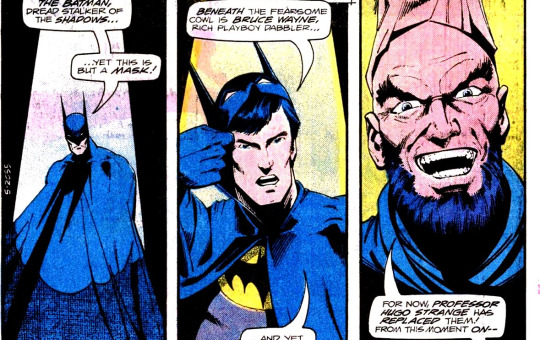
Of course, if you know Hugo Strange, you likely already know this, and that he was then revived in the 70s by Marshall Rogers with a brilliant take that stuck to the character's origins as a brilliant crimelord and scientific genius, but also added to him a specifically twisted psychological bent of being obsessed with Batman and becoming Batman, a villain of unshakeable will and even a twisted sense of honor and ethics, refusing to divulge Batman's secret identity even while beaten to death.
And from that moment onwards Hugo would go on to have some of the most consistently brilliant appearences out of any Batman villain (at least until the 2010s) and would secure himself as a mainstay, albeit a very obscure one, figure of Batman, the kind of villain whose plots can range from Born Again-esque subtle destructions of a person's life to a rampage of mutant kaijus on downtown Gotham, and like many of the best Batman villains, it all comes back to a central obsession and psychological edge upon Batman, and the weaponizing and destruction of anything that stands in his way.
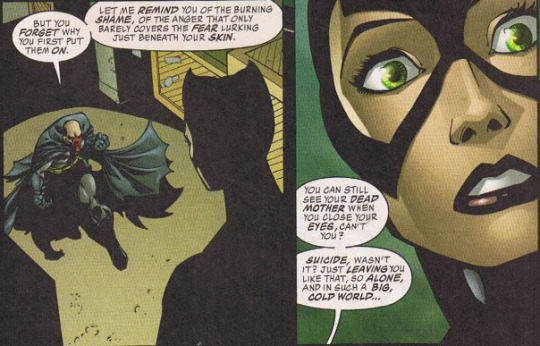
You could argue Hugo Strange used to be a cut and dry pulp villain who was eventually reimagined as a Batman Villain, and it would even be somewhat fitting of his in-universe trajectory as a man who started out a career as a figure of prestige and respect, effortlessly able to blend in society, until his repeated encounters with Batman and, most importantly, his gradually increasing obsession with becoming Batman, gradually destroyed him until he's no longer the one ruling the madhouse, but instead trapped in it.
But the reason why I'd argue Hugo Strange is still a Pulp Villain is because his reinventions didn't shed away what he used to be, they merely returned him to his true origins. Because Hugo, you see, is not just a Mad Scientist or Mad Psychologist, Batman's got those by the dozens. Hugo is of a particularly nasty kind of Pulp Villain, who came to existence around the same time as the Mad Scientist if not slightly earlier, an archetype Jess Nevins has named The Evil Surgeon
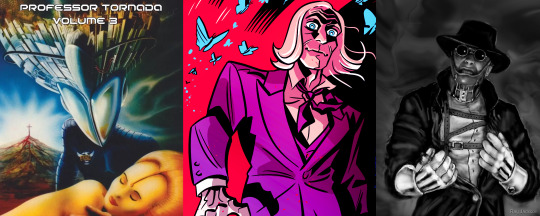
Medicine has arguably thrown up more serial killers than all the other professions put together, with nursing a close second - Herbert Kinnel, former chairman of the British Medical Association
The Evil Surgeon came to existence as a pop culture archetype in the late 19th century, as the result of serial killers like Jack the Ripper and H.H Holmes making the news, with Doctor Quartz from Nick Carter being first and foremost among these, as the main arch-enemy of the most published character worldwide at the time.
He would be followed years later by H.G Wells's Doctor Moreau, and the likes of Dr Caresco and Professor Tornada, the stars of novels created by André Couvreur, who was himself a medical doctor and used these novels to both condemn the characters as well as give serious consideration to the ideas they explored, and depicted Dr Caresco's over-the-top exploits harkening back to stories about Marquis de Sade (the origin of the term "sadist"). These would be followed by characters like Grigorii Trirodov, Dr Cornelius Kramm, Dr Gogol from Mad Love, currently the most famous example of this seems to be Hannibal Lecter. And Hugo has been operating much more along the lines of those characters in the last decades, than the typical mad scientists he was once designed in reference to.

Of course there's a massive overlap between the two and room to dispute whether they even constitute separate archetypes, they practically came to existence together following the footsteps of Victor Frankenstein, who really isn't a true example of a Mad Scientist in the original novel, and wasn't even a real doctor, but Frankenstein's reputation undeniably is the oldest cultural touchstone we can point to as an influence in the archetype, even if said archetype would only truly take form in pulp magazines and serials.
What I'd argue defines the Evil Surgeon as an archetype specifically, is that they are specifically centered around the violation and destruction of the human body and function more as murderers with budgets, than supervillains in labcoats. Mad Scientists are generally more centered around plots closer to sci-fi/fantasy inventions like sentient robots and immortality potions used for large scale global domination, where as Evil Surgeons are more preoccupied with wielding psychology and torture and criminal resources to get away with destroying minds on more individual scales, or turning cities into slaughterhouses for them to work in.
They aren't quite full blown slasher villains, like Zsasz or Professor Pyg, instead they usually tend to be quite good at passing off as respectable, mentally sound figures of moral standing, and usually possess a sense of purpose towards their work, a goal they are working for by piling corpses atop each other and moving resources to achieve, even if said goal is a purely selfish fulfillment of their own desires. It's quite common for these characters to acquire large bases for them to operate in, even islands specifically.
In Caresco Surhomme, Caresco has taken control of the Pacific island of Eucrasia. Caresco applies his surgical methods to the inhabitants of the island, altering them to better do their jobs. The captain of the plane which brings outsiders to Eucrasia is a limbless trunk with telescopic vision. Even the island itself is in the shape of a human body. The natives of Eucrasia are addicted to various sensual pleasures and generally submit to Caresco’s rule, for fear that he will castrate them or worse.
On Eucrasia, Caresco makes use of “omnium,” a mysterious and unexplained power source, to create: a machine capable of stripping the years from human bodies and reversing the aging process, a fast underground train system, food pills, omnium-powered diving suits, and so on. Caresco is given to such things as collecting the spleens of all those he operates on - Jess Nevins, The Encyclopedia of Pulp Heroes
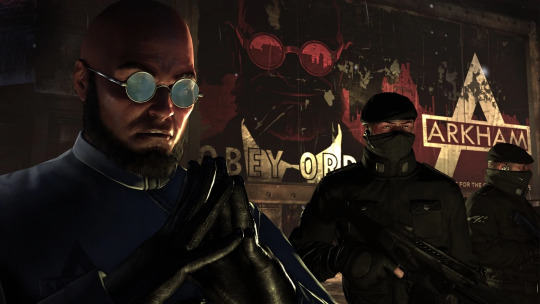
So, yes, I absolutely would argue Hugo Strange is still a Pulp Villain. Pulp villains do come in many different forms other than the Fu Manchus and Fantomases that are most commonly imitated, pulp was the breeding ground of the supervillain as a concept after all, where they got to star in their own magazines time and time again. Hugo started off as a fairly generic one, and when he's written poorly, he tends to be brought onboard of a story purely because it calls for a mad scientist.
But Strange came back from death as something much, much worse than just a crimelord and mad scientist, a much more rare and much nastier type of villain that, much like Hugo himself, may lie dormant, but refuses to stay dead for long.
"Quincy. My servant. My friend," Hugo said. "We don't have much time."
Quincy was crying again, with joy. "How, master, how did you-?"
The therapy, Quincy realized. The hypnosis. The drugs.
"Stay with me master, please!" Quincy tried to grab hold a phantom hand.
"I cannot." Strange said, looking benevolently down at Quincy, stroking his hair with a touch the prisoner couldn't feel. "But there is one last service you can perform me."
"Anything, Hugo, please."
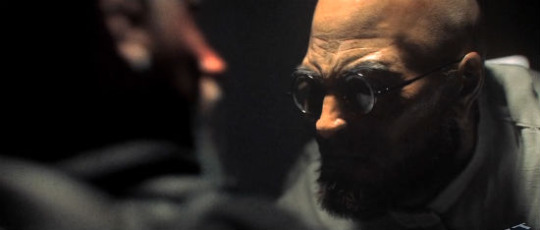
"First, remove the sheet from your bed, Quincy. And tie it to the light-fixture on the ceiling."
38 notes
·
View notes
Note
Hello, I’m sorry to bother you. I have a question about the Eucharist that I’ve never understood. Don’t kill me for asking, but do you (Catholics/Christians) believe the Eucharist truly transforms into jesus? Or is it believed to be more symbolic of sorts? I’m pagan, so I’ve only had an “outsiders” perspective, and I apologize if it’s rude to ask, if just genuinely curious and confused.
Great question and we are more than happy to answer (that’s what this blog is for!)
Catholics and Orthodox Christians very much believe that the bread (and the wine) used at the Eucharist (the Christian commemoration of Jesus’s last supper) is really, physically, and literally transformed into the whole Jesus Christ (Body, Blood Soul, and Divinity).
Because we believe that Jesus is God, we are very excited about it, so please forgive me if I go into some detail.
The main reasons are that
1. Jesus said it would be,
2. He commanded His followers to do it, and
3. All Christians from the earliest followers of Jesus until about the fourteenth century believed it.
1. Jesus says in the Gospel of John Chapter 6 (right after he miraculously fed people with bread)
“Truly, truly, I say to you, unless you eat the flesh of the Son of man and drink his blood, you have no life in you; he who eats my flesh and drinks my blood has eternal life, and I will raise him up at the last day. For my flesh is food indeed, and my blood is drink indeed.He who eats my flesh and drinks my blood abides in me, and I in him.As the living Father sent me, and I live because of the Father, so he who eats me will live because of me. This is the bread which came down from heaven, not such as the fathers ate and died; he who eats this bread will live for ever .”
There is a lot about this passage and he says a lot more about eating his flesh, but a bunch of his followers leave in response. Instead of saying, “Wait, guys! That was a metaphor!” He turns to his twelve chosen apostles and says, “Do you also wish to go away?” Now, these twelve were the guys he explained everything to in private, the ones he kept close and trusted. Jesus is saying here that this teaching is so important that I am willing to lose you, my closest friends, over it. (They stay).
2. On the night He was going to be betrayed, imprisoned, and then eventually executed, Jesus commands his followers to do this.
And he took bread, and when he had given thanks he broke it and gave it to them, saying, “This is my body which is given for you. Do this in remembrance of me.” And likewise the cup after supper, saying, “This cup which is poured out for you is the new covenant in my blood.
Knowing that He was going to die, He told them to do celebrate this meal wherein He offered His body. Later on (after He rises from the dead), Jesus sends the apostles with all of the power He was given from the Father (who is also the One God, but that is another post) to do as Jesus commanded (Jn 20:19-21). Chief among these things was to offer this same meal with Christians.
3. That last one seems pretty ambiguous, even if you were with me on the first point. At this point, even some Protestants can argue that it is a metaphor (and they do, but they did not exist until 1500 years after Jesus at the earliest). All of the earliest Christians, from the bible writers, before the Christianization of the Roman Empire and beyond, believed that the bread and the wine offered by a priest or bishop (the guys the twelve apostles appointed as their replacements, with the same Spirit giving them the same authority) becomes, really, the Body and Blood of Jesus Christ.
St. Paul (a Bible writer, converted by Jesus in the 30s AD) writes
For I received from the Lord what I also delivered to you, that the Lord Jesus on the night when he was betrayed took bread,and when he had given thanks, he broke it, and said, “This is my body which is for you. Do this in remembrance of me.”In the same way also the cup, after supper, saying, “This cup is the new covenant in my blood. Do this, as often as you drink it, in remembrance of me.” For as often as you eat this bread and drink the cup, you proclaim the Lord’s death until he comes.Whoever, therefore, eats the bread or drinks the cup of the Lord in an unworthy manner will be guilty of profaning the body and blood of the Lord. Let a man examine himself, and so eat of the bread and drink of the cup. For any one who eats and drinks without discerning the body eats and drinks judgment upon himself. (1 Cor 11)
Thus beginning the law that only baptized Christians who both are clean from serious sins and believe that priests and bishops make the Eucharist Jesus can receive the Eucharist.
Jesus was born in Bethlehem, a town which in Hebrew literally means “House of Bread.” When He was born in a stable, they laid him in a manger, that is, the trough out of which the animals eat hay. God’s a little on the nose here and St. Luke’s Gospel puts it front and center, making sure everyone knows that the birth of Jesus reflects what Christians believe about the Eucharist.
The Didache (teachings of the Apostles, dated at 60ish AD)
But let no one eat or drink of your Eucharist, unless they have been baptized into the name of the Lord; for concerning this also the Lord has said, "Give not that which is holy to the dogs." . . . But after you are filled, give thanks this way: We thank Thee, holy Father, for Thy holy name which You didst cause to tabernacle in our hearts, and for the knowledge and faith and immortality, which You modest known to us through Jesus Thy Servant; to Thee be the glory for ever. Thou, Master almighty, didst create all things for Thy name's sake; You gavest food and drink to men for enjoyment, that they might give thanks to Thee; but to us You didst freely give spiritual food and drink and life eternal through Thy Servant. Before all things we thank Thee that You are mighty; to Thee be the glory for ever
St. Ignatius of Antioch (c. 110 AD)
Take note of those who hold heterodox opinions on the grace of Jesus Christ which has come to us, and see how contrary their opinions are to the mind of God. . . . They abstain from the Eucharist and from prayer because they do not confess that the Eucharist is the flesh of our Savior Jesus Christ, flesh which suffered for our sins and which that Father, in his goodness, raised up again. They who deny the gift of God are perishing in their disputes” (Letter to the Smyrnaeans 6:2–7:1
St. Justin Martyr (writing to Romans accusing Christians of murdering and eating their members c. 155 AD)
For not as common bread and common drink do we receive these; but in like manner as Jesus Christ our Saviour, having been made flesh by the Word of God, had both flesh and blood for our salvation, so likewise have we been taught that the food which is blessed by the prayer of His word, and from which our blood and flesh by transmutation are nourished, is the flesh and blood of that Jesus who was made flesh.
And that is just the first 200 years.
So, Jesus Christ (God) is in every Catholic and Orthodox Church under the appearance of bread and wine. We are generally psyched about it because we get to worship and physically commune with our God in the way He set up for us every day if we want to. Catholics have a custom of spending time in silent prayer before the Eucharist in churches just to spend time with Him. It is honestly the best thing about being Catholic.
If you want to know more about how that works with scientific testing, why Protestants don’t have this transformation, how we prepare, or anything, feel free to ask more, but the answer to your question is “Yes, because Jesus made it so and we have always believed His word.”
164 notes
·
View notes
Text
I saw:
Black Panther- Because this movie is not only in theaters but incredibly popular and carries great social significance I wonder if there is any point in my writing my thoughts about it. So many others will be writing so much, and undoubtedly there are going to be people writing about it for many years to come, that anything I say with my sleepy brain will seem even more like babbling than usual. Still, I want to say something about a film that got to me far more than I anticipated.
In simplest terms, it’s the story of a man inheriting a position of power at the death of his father, only to have that role challenged by someone that has a claim but also a rage and ruthlessness that would make his victory destructive. The hero is reduced at first to the help of those closest to him, but also finds a trusted friend siding with the enemy and a former enemy coming to his aid. Can the hero claim his birthright?
Of course, that is not why the movie is so great. It’s a powerful, traditional, story framework but the key things here are the specifics.
The hero is the king of an African nation, one never conquered by colonizing nations and has managed to secretly develop incredible scientific technologies while holding on to their traditions. It’s a nation full of powerful women, as scientists, soldiers, advisors and spies despite the fact it’s lead by a king with trial by combat to decide leadership disputes.
The main villian of the story, and potential challenger as heir to the throne, is a man who had his father die a violent death leaving him a young boy living poor and black in America despite his royal heritage. His pain and resentment festering, mixing with military training curtesy of thr US in it’s darker actions, until he’s a man that doesn’t flinch to kill anyone ever.
Obviously all of this makes it fodder for contemplating the real world. It’s very rich in that regard. I could probably write a dozen posts on the themes touched on, with the after effects of colonization and slavery contrasted with the hero’s untouched country as just one of the more obvious. For instance I got into a whole discussion coming out of the theater about isolationism versus altering outsiders through force. I won’t bore you by writing a list of discussion topics for essays like some damn study guide.
It does prove the power of diversity. Simply by not being about white male superheroes, this makes it fresh ground. It might feel so rich with concepts worthy of thought just because these ideas have not had an opportunity to be voiced.
It was odd how emotional I became right out of the gate. Like with the mythic introduction to Wonder Woman, I was surpised to find tears in my eyes. With Wonder Woman I had a lifetime with the character and being female myself , so it wasn’t so unexpected. Here I was frequently moved to tears, despite the fact you wouldn’t expect it to resonate so deeply for me as it might if I were black myself had a history with the character.
Now I don’t want you to get bogged down with the seriousness of it all. It’s a superhero movie with cool fight scenes, gorgeous design work, and strong acting. It has a sense of humor, frequently from the hero’s lovable genius scientist sister. Speaking of which...
Weirdly, the audience I was with were taking the movie too seriously to laugh. Mom and I were chuckling at moments clearly meant for that, and we echoed in the theater. I mean, at one point when the hero didn’t laugh at his sister’s “Sneaker” joke and you could have heard crickets chirping around us I really wanted to reassure the character that it was funny.
I’ll tell you the truth, I REALLY wish this movie existed when I was growing up. Not so much for me but for some of my friends that didn’t get to see characters that looked like them getting to be heroes.
For example, I remember once bringing a copy of Starlog to school and my best friend was looking at it with me. Suddenly she made a face. There was a photo Dayna from Blake’s 7, and if you don’t she’s a character with a thing for weapon designing played by a black women. I asked my friend what was wrong and she told me the actress (an attractive woman with a natural sort of hairstyle) was ugly. I was shocked and confused. She explained it was because the woman was “too dark” and had “nappy hair” (a term I had not known). My friend was a black girl with skin just as dark and hair that would be a lot like that if it weren’t for all the things she did to it. (Which sometimes burned her scalp among other difficulties) I realized my friend had bought into an image of what was beautiful that she could never meet. It was heartbreaking!
Now suppose this movie had existed back then, or better yet a few years before, say when she was 6 or 8. She would have seen women in variety of skin tones and natural hair, women she could imagine herself to be, being smart and brave and even kicking ass while wearing a beautifully flowing red dress. I’d like to think it would have made a difference to my friend.
And so, while I can blather say “gee whiz it’s pretty and fun” or “look at all the intellectual babble it can inspire” I guess down deep if the movie ends up really mattering it’s because of all the kids out there having their ideas of what is possible shaped for the better.
Now if they can just keep making movies that are diverse so that one day the percentage about white males matches their actual percentage in the population.......
5 notes
·
View notes
Text
My faith habits
I thought I’d share what kinds of podcasts and publications I read and absorb as a habit. I met a friend of my nephew recently at a party, learned he was Christian, and we had a terrific conversation on theology and misc subjects. I told him I’d send him some resources that came up in the conversation, and send him an email. I thought about it, and thought “why not send this to everyone via my blog, and I’ll send him the link? This way everyone can potentially see it.” The lampstand thing. So here it is:
Podcasts, I listen to at least a couple daily on my commute:
Reasonable Faith - William Lane Craig
Cold-Case Christianity - J. Warner Wallace
Cross-Examined - Frank Turek
Let my People Think - Ravi Zacharias
Stand to Reason - Greg Koukl
The Bible Answer Man - Hank Hanegraaff
Truth for Life - Alistair Begg
Above and Beyond - Brock Huard
Faith-based Youtube Channels, I like to binge watch these to wee hours of the morning:
drcraigvideos - All videos William Lane Craig, debates, interviews.
ReasonableFaithOrg - Yes I love WLC and the way he defends the Christian faith, and gives you courage in your beliefs because you know how to defend them.
Pastor Melissa Scott, Ph.D. - Sheer knowledge of scripture and translation.
Acts17Apologetics - David Wood, specializing on witnessing to Muslims.
Ravi Zacharias International Ministries - Can’t get enough.
Living Waters - Ray Comfort. I learn so much about interactions with the public through him. Very encouraging.
Hugh Ross - Scientist and Christian, fascinating facts about how much the bible actually aligns with science.
Anything resulting from the youtube search “Atheist vs Christian debates”. Brain candy for me, I love love love listening to these.
Books I would recommend:
Cold Case Christianity - J. Warner Wallace
I Don’t Have Enough Faith to Be an Atheist - Norman Geisler
The Evidence That Demands a Verdict - Josh McDowell
God’s Crime Scene - J Warner Wallace
The Case for Christ - Lee Strobel
The Mystery of Providence - John Flavel
Seeking Allah, Finding Jesus - Nabeel Qureshi
The Insanity of God - Nik Ripken
On Guard - William Lane Craig
and on and on. My Amazon Kindle wishlist is a mile long, as I read I’ll update this blog.
Anyway here is a partial list of what kinds of media I consume. Of course, all of this matters not if you do not digest, regularly, if not daily, the word of God. I make it a habit of reading scripture after going to bed and before turning off the light, about 15-30 minutes or more. I choose this time because I will without question always go to bed every day, guaranteed. So what better time to build in my reading time. Just my strategy for discipline. Also there’s the added benefit of the fact that your mind tends to hold and entertain what you last consumed before sleep. I don’t have any scientific data on this, but I have more than once awoke to the memory of what I read 8 hours before. But contrast that to if you ask me what I had for breakfast after a work day.
I hope you got something out of these and share back any you would recommend! I am always seeking new material to read,
Podcasts and Misc
I listened to Ravi Zacharias today on the way home, and podcast called “The pursuit of truth”. He pulls no punches on where relativism leads you. I always get something from listening to him, whether it be his actual logic or his delivery. The facts cannot be disputed. Always so mentally stimulating and satisfying to listen to his irrefutable reason.
I also listened to Greg Koukl in the AM, the STR podcast. He had a person on talking about terrorism in Sri Lanka, and how the words of the Quran actually commands this behavior. This is what is “good” in the eyes of Islam, and Allah. I am learning a lot about the teachings of Islam, and how they view Jesus. It’s quite odd that they think he’s a great and revered prophet, but deny his deity. I find this strange because Jesus claimed he is “the way, the truth, and the life”, predicted his own resurrection, and claimed to be the son of God in front of the Sanhedrin. If they deny his deity, it would make more sense that they thought him a lunatic, and not a revered prophet. I think C.S. Lewis said it best regarding this:
“I am trying here to prevent anyone saying the really foolish thing that people often say about Him: I’m ready to accept Jesus as a great moral teacher, but I don’t accept his claim to be God. That is the one thing we must not say. A man who was merely a man and said the sort of things Jesus said would not be a great moral teacher. He would either be a lunatic — on the level with the man who says he is a poached egg — or else he would be the Devil of Hell. You must make your choice. Either this man was, and is, the Son of God, or else a madman or something worse. You can shut him up for a fool, you can spit at him and kill him as a demon or you can fall at his feet and call him Lord and God, but let us not come with any patronizing nonsense about his being a great human teacher. He has not left that open to us. He did not intend to.”
0 notes
Text
Credibility
Credibility – one show talks about how they have built their credibility. This show uses ominous music and pictures to build up the show. This show will use electronic voice phenomena clips that are not always directly related to the questions being asked, though they add in assumptions to make it fit. If you actually evaluate it instead of taking their word for it, it is clear they don’t necessarily go together. More often, the message is not clear, and shows like I am describing offer a suggestion that people are supposed to take at face value as being accurate. Most of us realize encounters are not worthy of a show..they are small experiences. This show did an investigation in Carson City, Nevada. The tour guide shared a story about the host having his camera man zoom in on a cable the size one would find to pull down an attic ladder. It had a loop on it. He had the cameraman zoom in so it appeared to be the size of actual rope and made some statement about someone hanging there or could have hung there. I am getting this information from the tour guide. I have not seen the episode myself.
They also did a show about an island of dolls. They say a priest told an owner of a doll that is it possessed. There was no proof. They said the doll will not burn and they show a picture of the doll. There was no attempt to burn this doll. It is a creepy looking hard plastic doll with cracks. I promise you, if someone put lighter fluid on this doll, it will burn.
Another show highlights a psychic and a retired police officer conducting independent investigations and then they come together at the end of the episode to compare notes. I spoke with a person who was on a paranormal investigation team with the alleged psychic. This person told me the person in question was not a psychic; instead, this person was a regular investigator. I find it interesting that this person gets a show and is now a psychic. Each week, the end of the show always requires some new type of paranormal exorcist…a shaman, yoga instructor, Jewish, witch doctor whose favorite color is purple. It seems to me this show is or was chasing ratings.
I think we must hold shows like this accountable. Just because they call something evidence, it isn’t necessarily real evidence. Shows are filmed in a a way that information can be presented out of order and out of context.
Shows need their gimmick. On one, a new device designed to capture spirits is created. It is neat looking and fun, but it is not based on any scientific fact and it always fails. As with most, it is filmed at night. I am not convinced this is necessary. It also highlights a loud guy who attempts to challenge spirits.
Another show that chases bigfoot does just about everything wrong you can do when interviewing people to learn facts. They take a community of people and interview them as a group. This is no-no number one. A proper interview typically takes place with one interviewer and one interviewee. The interview asks open ended questions in a quiet environment free of distractions. This gives the best possible outcome for someone to give information without it being influenced by other people or the interviewer themselves. Recollection is already fallible. I observed a documentary where people were walked through a make believe ufo crash site. They were interviewed after and then interviewed again at a later time. It was amazing to see their perceptions and how they differed from what was there. What really gets me is these people talk about evidence, but what they gather is not truly evidence.
I think the worst show I have seen is one that each week they came across a new monster. The recipe was to take in information, track the monster to a close call, set up a trap, and the trap would fail each time for one reason or another. But next week the trap setter was once again touted as one of the best, only to see it fail again. An entertaining show, but it frustrates me that it is packaged in a way to make it appear real. I did some reading of posts from people who watch the show and it was amazing how many people believed this and verified with their own exaggerations to give this show credibility. I have no issue with entertainment. It’s fun. But these shows take someone interested in the paranormal and they train them to believe untruths, rather than show them how to do an investigation with integrity, to show what evidence actually is, and to show how to capture evidence. In addition to this, debunking is our friend. It is good for us because it shows our credibility that we will only use actual evidence to prove or disprove allegations. It is nothing to be afraid of. Many of us know the paranormal is real, so purging out bad information means we will be left with solid information that can be used to dispute skeptics. We may not locate as much evidence, but that is how it works.
Amityville credibility – Defeo history is an abusive father and a son on heroin. When you look at the court proceeding, Defeo created many stories. The possession story was not the first story and it had no extra credibility over the other stories. He was a violent person and people were afraid of him. Investigators and psychics came out and verified demonic activity at the residence where he killed his family. It appears the truth is Defeo’s defense attorney got together with the Lutz’s and concocted the story to make money; something that was later admitted to, but people still believe this happened…no one before or since the Lutz family has encountered paranormal activity. The story states untruths such as the priests interaction. It never happened. Research falsehoods of Amityville to get the truth in more detail. Learning the truth disappointed me. I believed in the credibility of some of these investigators / psychics. Now I realize they are probably people who have learned to manipulate people to sell books.
I think it is important for people new to investigating to understand, and hopefully the veteran investigators out there can agree, facts prove something and they are free from opinion, faith, and interpretation. Interpretation is someone using their filters of what they have been taught and what they believe when evaluating information. These are the tools designed to generate opinion. Fact based investigations have no room for opinion with the exception of expert testimony, which is the opinion of someone who is an expert in a field. With the paranormal being such an unproven science, I can’t think of anyone off hand that I would consider an expert. They key is for the evidence to drive an investigation to a truthful conclusion, rather than investigators manipulating information, be it on purpose or accident, in order to obtain the results they want to see.
0 notes